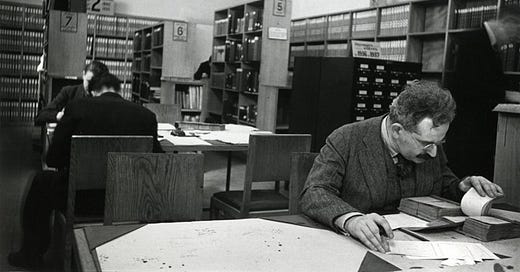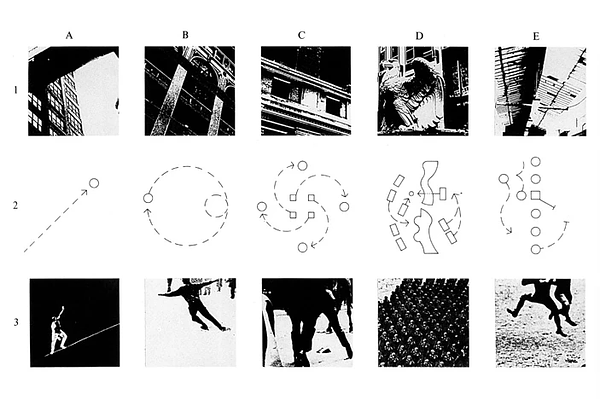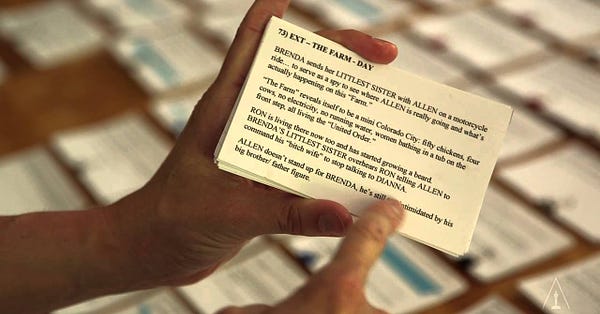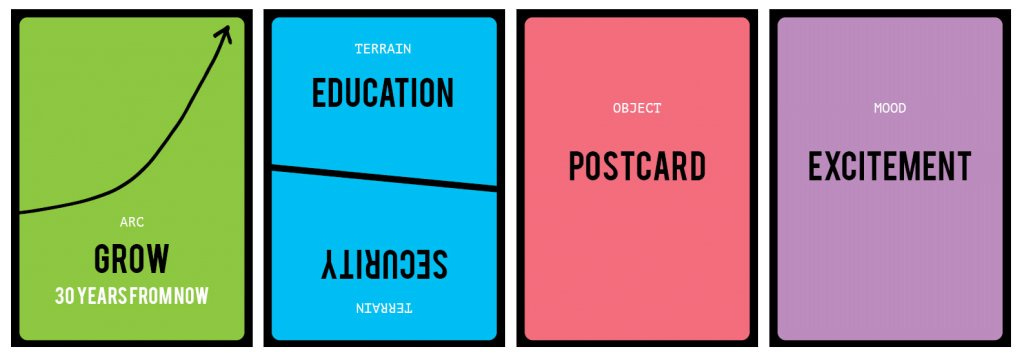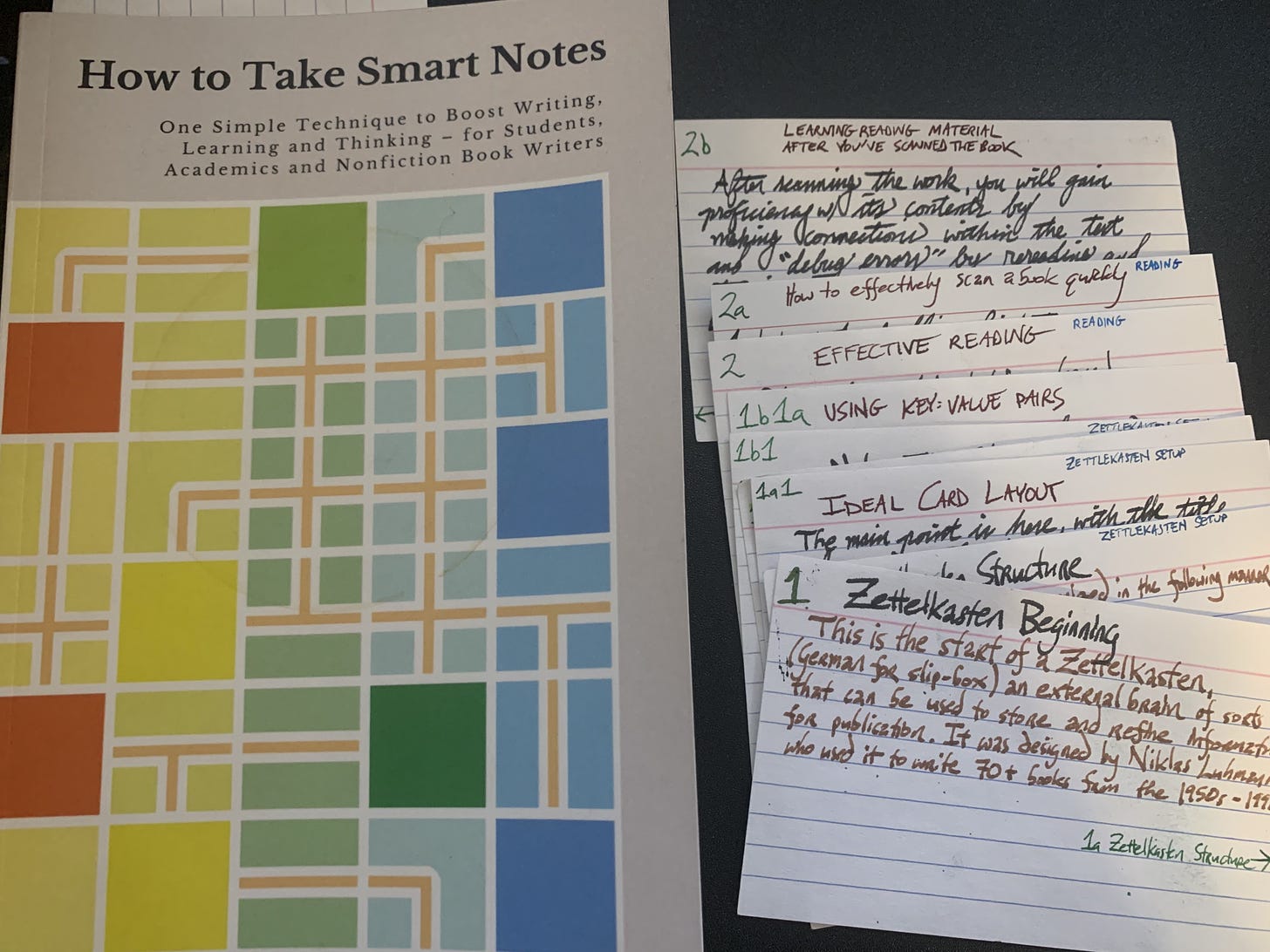Today the book is already… an outdated mediation between two different filing systems. For everything that matters is to be found in the card box of the researcher who wrote it, and the scholar studying it assimilates it into his own card index.
- Walter Benjamin

Before the advent of computers it was common for writers and researchers to collect boxes and boxes of index card notes… a kind of proto-hypertext.
Cards continue to be one of the best personal tools for thought. Thought legos.
One my design goals for Subconscious is to bring some of the magic of cards to a multiplayer app. So what’s so great about cards?
One card = one idea
You can collect them without worrying about how they fit into a bigger picture
You can group, shuffle, shape, sort, cluster, connect, reorder
What can you do with cards?
1 / Order and re-order them to find a narrative… or multiple narratives.

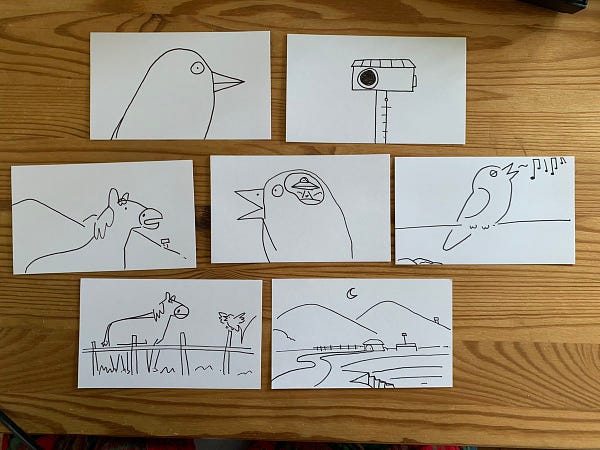
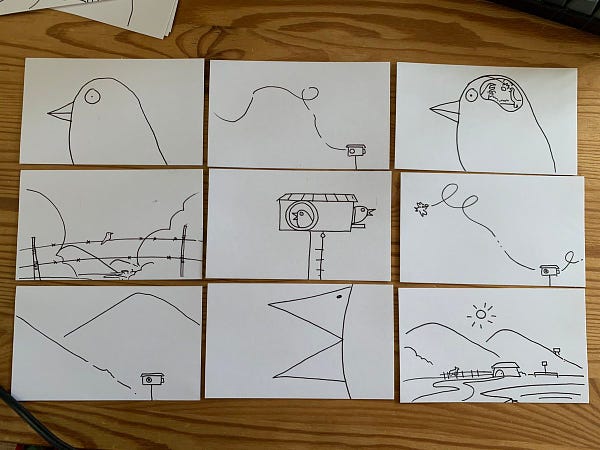
2 / Get non-linear.
3 / Spread all your thoughts out in front of you.

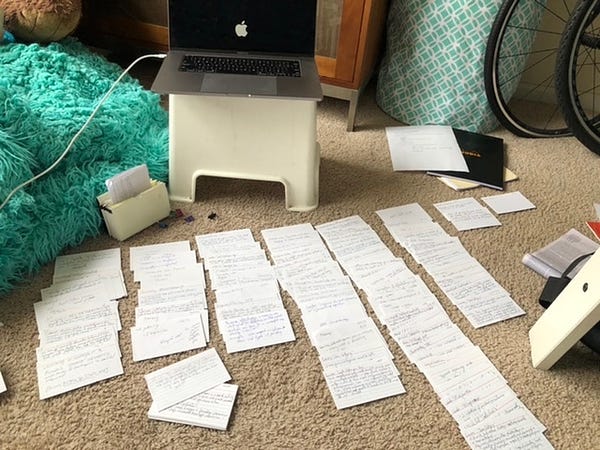
4 / Build your own personal deck of Oblique Strategies.
5 / Build decks by theme (or mix decks together).
6 / Draw a random card for inspiration.
7 / Juxtapose several cards to draw out new meanings.
8 / Cluster analysis.
9 / Do analog version tracking.
10 / Create an algorithmic story generator.
11 / Condense a book into a deck of cards.
12 / Write a new book.
13 / Write a screenplay. Aaron Sorkin, David Lynch, Spike Lee, Mira Nair and David Mamet write with index cards. David Lynch says "If you have 70 notecards, each representing a scene, you’ve got a movie."
14 / Write down an intention, a poem, an aspiration, and carry it with you.
15 / Give someone a card, as a gift.
I'm building a new tool for thought. I have a general sense of the direction I’m traveling, but I will be as surprised as you are at what I discover along the way. I'm posting these little emails as trail markers, every week or so. I share updates, ideas, design patterns, and snippets of books and papers.


